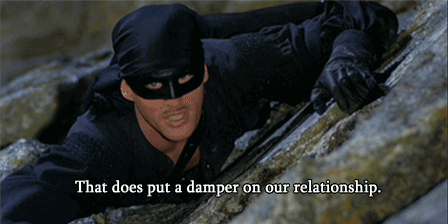What does the Bible say about praying to the dead?

"There is one God and one Mediator who can reconcile God and humanity — the man Christ Jesus." —1 Timothy 2:5
So many story plots in entertainment would have us believe that it's possible to speak to the dead. That if we wanted wisdom from a relative who has died, that we could somehow reach across the spiritual realm and talk to them.
But the Bible warns against trying to make contact with any spiritual being outside of God. But why?
Let’s say you have a question about your homework. Who would you ask: your teacher or a student who took that class 10 years ago? How about if you had a question at your job? Would you ask your boss or the stranger who lives two streets away from you? Or would it make sense to just stand outside your school/job/house and yell your question into the void?
Hopefully, the answer is obvious. The one who's "in charge" is the best person to discuss those issues with. Why ask someone who’s out-of-date, out-of-touch, or who doesn't even know you? You'd be setting yourself up for an inaccurate, out-of-touch, or even harmful answer.
That's essentially why the Bible says we aren't supposed to pray to the dead—God is going to give us the best, most accurate answer or response.
Our Heavenly Father is Right Here
Prayer gives us the ability to speak with the ever-present, all-powerful, all-knowing, all-good Creator of the universe. Why would anyone want to ask for advice from anyone else?
Even IF we thought there was a small chance the dead might answer, there’s a 0% chance they’d give us an answer better or more effective than the one we would get from God. Even IF there was a chance the dead could help in some positive way, how could they help more than God Himself?
The Bible tells us there is ONE person who bridges the gap between us and God (1 Timothy 2:5). That person is Jesus—not a deceased family member, not a saint, not anyone else.
Dead Men Tell No Tales…
To be clear, dead people don’t actually hear us or reply to our questions. They cannot do it. How do we know?
The Bible talks about the dead often but never suggests that those who have passed on can regularly communicate with the living. In 1 Samuel 28, Saul tricks a witch into summoning the recently deceased Samuel. When the Lord allows Samuel to appear, the witch cries out in terror (v.11-12) because summoning the dead is not actually supposed to be possible.
There’s no reason for God to allow the dead to talk to the living on a regular basis anyway. Scripture says those who have died have their fate sealed (Hebrews 9:27). We can’t change their destiny, and they can’t influence ours. The Bible doesn't even hint that the dead can exert supernatural power on earth.

So, if the dead can’t hear our prayers, they can’t answer back, and they can’t effect change on earth, what’s the harm in trying to talk to them? Or use a Ouija board? Or participate in a seance? Other than being a waste of time and effort, we have one word for you: demons.
…but Demons Love to DM
If you go a random place on the internet, say a social media comment thread, and started asking questions, you could be sure of two things:
- You don’t really know who you’re talking to.
- There are definitely going to be trolls in the area.
If there was a platform that blocked all legitimate commenters and only allowed trolls, would you still want to communicate or learn anything there?
Spiritually, that’s the case as well. In terms of prayer, there are only two options: talk to God or talk to whoever else is listening. And the only beings in that second category are Satan and his fallen angels (demons).
We might TRY to pray to the dead, but most likely we won’t get an answer because the person we want to address can’t hear us. However, there IS a chance we'll get an answer—but it won't be from that person. It’ll be from another spiritual being that can hear us and wants to answer—but has ZERO interest in our well-being.
God says not to talk to the dead.
God makes it clear that divination, or praying to the dead, is a serious sin (Deuteronomy 18:11; 1 Samuel 28:1-25; 1 Chronicles 10:13-14). Any attempt to communicate with a spiritual entity, other than God Himself, does three things:
- It ignores a direct command in the Bible.
- It bypasses the best person to pray to in the first place—God.
- It opens a channel of communication with demons who hate and defy God and would love nothing more than to hurt you.

Well-meaning people, especially in certain churches, may suggest that praying to specific dead people is OK—so long as you’re just asking that person to speak to God on your behalf. But remember, there’s nothing in the Bible suggesting those people can hear or that they could pressure God into doing anything.
Anyway, why not just talk to God directly in the first place?
Whether your intentions are good, bad, or indifferent, the answer is the same: Prayers to the dead are against God’s law and dangerous to your spiritual safety. Talking to the dead is not something Christians should practice for any reason. Cut out the middleman. God is right there, waiting to hear from you with anything you want to say or ask.
"For we do not wrestle against flesh and blood, but against the rulers, against the authorities, against the cosmic powers over this present darkness, against the spiritual forces of evil in the heavenly places." —Ephesians 6:12
ALSO SEE:
- What does the Bible say about divination?
- What does the Bible say about witchcraft?
- What is prayer?
- How can I know if I am hearing God, hearing Satan, or just talking to myself?
- Why do people die?
- What happens after death?
- How can I overcome the fear of death?
- Finding Peace While Grieving
- What do demons do?
- The Truth About Demons
- What kind of being is God?


TL;DR
Why talk to strangers, enemies, or empty space when you could talk to the all-powerful, all-knowing Creator of the universe? God prohibits prayers to the dead—period, full stop, no exceptions. He is more than able to hear and answer our prayers; we don't need intercessors who have gone to the grave. Those who try to pray to the dead risk opening a line of communication with a demon or other being who isn't going to be helpful. Even if someone means well, there's no biblical reason any Christian should ever pray to someone who has died (Deuteronomy 18:11).

Writer: Jeff Laird
Jeff is a staff writer with Got Questions Ministries and used to be a mechanical engineer. When he's not accidentally setting things on fire in his workshop, or petting strange dogs, he loves helping people better understand God’s Word and how it applies to our lives. Jeff's calling is to untangle the "big picture" of Christian faith, making it easier to understand.
